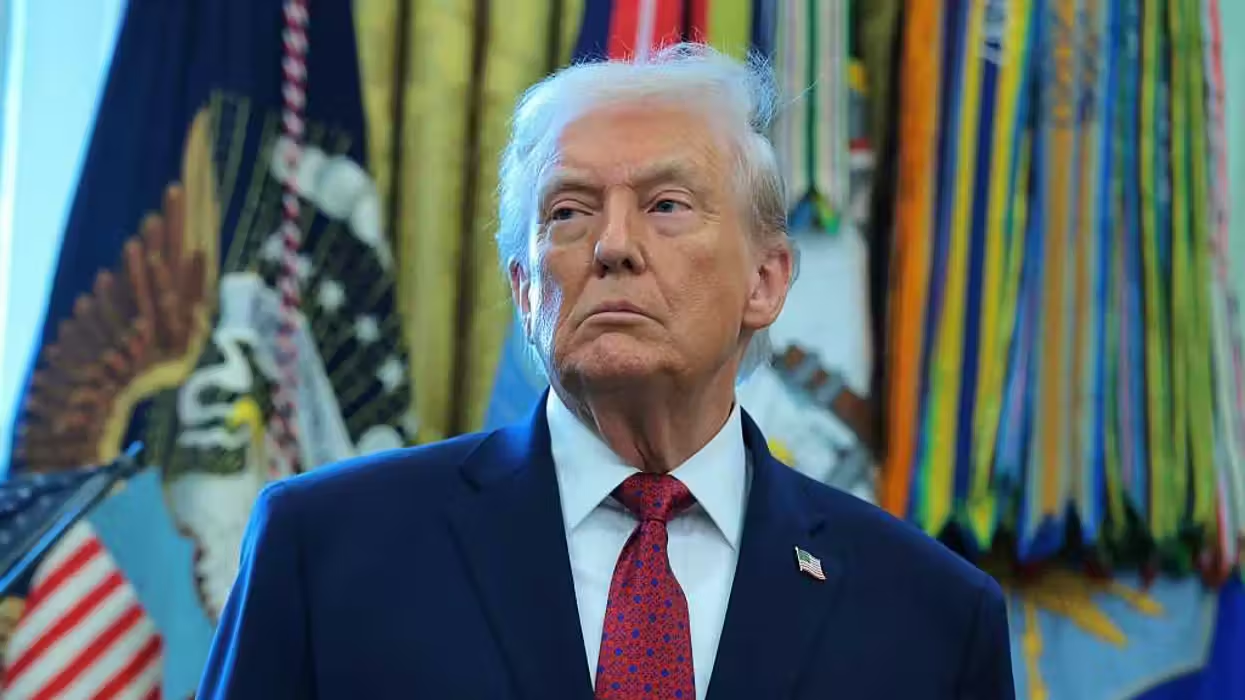In November, Republicans took control of the White House and both houses of Congress, promising to change Washington, D.C. Now that the GOP actually holds power, it's looking less likely that will be the case — at least anytime soon.
The GOP's first major defeat came when it failed to pass the American Health Care Act, the House Republican leadership's bill to replace Obamacare. The legislation was opposed not just by Democrats, but also by members of the conservative House Freedom Caucus and many moderate House Republicans.
Following the health care setback, Republicans vowed to move on to other fights, including tax reform and the federal budget. But according to one conservative policy expert, the chances of Republicans claiming a huge budgetary victory — at least this year — are slim to none.
TheBlaze spoke Thursday with Justin Bogie, senior policy analyst for fiscal affairs at the Heritage Foundation, about one crucial, upcoming deadline. On April 29, federal departments and agencies officially run out of the appropriated funds passed by Congress. At that point, federal lawmakers must either approve new spending measures or the federal government must partially shut down.
The last partial government shut down was in 2013, when Republicans, including Texas Sen. Ted Cruz, made a last ditch effort to block full implementation of Obamacare. As a result, Washington, D.C., effectively ground to a halt for more than two weeks, before eventually opening back up.
Democrats at the time blasted Republicans for shutting down the government, but now that it's the Republicans in the majority, Democrats have expressed a new willingness to take a page from the GOP's 2013 playbook.
"If they put those poison pill amendments in and try to shove them down the American people’s throats, of course, they might be responsible for shutting the government down," Senate Minority Leader Chuck Schumer (D-N.Y.) said in early March.
Schumer was referring to Republicans' desires to defund Planned Parenthood and begin construction on a border wall between the U.S. and Mexico. If Republicans can't get enough Democratic votes to go along with these amendments, the bill that would continue to fund the government could fail, forcing departments and agencies to close until both parties can reach a compromise.
Sen. Chris Coons (D-Del.) said around the same time last month that while Democrats generally think the government "does good things for the American people," the Democrats' "ultimate card is to shut down the government when we get to the end of the funding.”
But according to Bogie, a government shutdown at the end of April is highly unlikely.
"They only have four legislative days left for this before the Continuing Resolution runs out," Bogie told TheBlaze, "so I can't really see making any huge policy changes. Unfortunately, I don't really see them looking to cut spending in this bill."
"I think 2018 is where most of the action is going to be," Bogie said.
Why not now?
Given the seemingly overwhelming mandate for Republicans in November, however, why are Republicans waiting to take any decisive actions?
Bogie said it's unclear, emphasizing Heritage's position that "there's no time like the present" for Republicans to do something.
"We should be cutting spending this year," Bogie stated. "We should be making reforms immediately because we're $20 trillion in debt."
"Our deficit's going to be skyrocketing over the next 10 years. So there's really no time like the present to have a Republican in the White House and in both houses of Congress," he added.
So, what's standing in Republicans' way? A number of factors are at play, but perhaps the most difficult obstacle is the 60-vote threshold in the Senate. Republicans currently hold 52 seats in the upper chamber, but for legislation to pass, it must garner a 60-vote supermajority to stop a filibuster, meaning that Republicans must reach out to a handful of Democrats to get anything on the president's desk.
'It's not going to happen'
Bogie said it's possible Republicans will push this time around for an additional defense spending, but that any significant cuts in the next spending bill are highly unlikely.
In his 2018 proposed budget blueprint, Trump called for an extra $54 billion in defense spending, Trump's fiscal proposal called for roughly the same amount in non-defense spending cuts.
"It's not going to happen on a lot of these domestic cuts. [Democrats] won't be willing to absorb $54 billion in domestic cuts," Bogie said.
Bogie didn't just point his finger at Democrats, though. He also singled out moderate Republicans.
"Even though a lot of Republicans would say 'We're for a balanced budget, we're for cutting the debt,' when it actually comes time to do it and cut programs that affect their constituents, I think it's politically harder for them to do, and they're less likely to do it," Bogie said, adding a challenge to the GOP to "put your money where your mouth is."
But Bogie isn't holding his breath.
"Hopefully, we'll get to that point soon, but I don't think it's going to happen with this bill," Bogie said.







